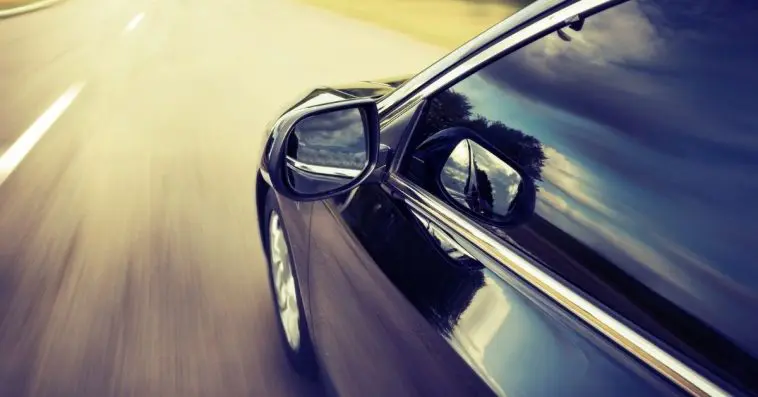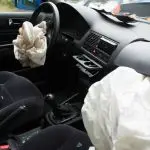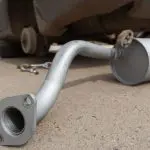Your car can be experiencing problems with the transmission, wheel bearings, CV joints, engine mountings, or the differential when it makes that grinding noise when you accelerate.
But to figure out exactly what it is could be a challenge. Read on to find out more.
Parents are told to listen carefully to what their children are saying.
The main reason for this is that kids, especially young ones, don’t have the vocabulary or the frame of reference to explain in any kind of detail what they mean.
So, for the first while, everything is dependent on the parents’ listening skills. If a problem can’t be articulated properly, a parent’s instinct becomes the translator.
Your car makes a cacophony of noise when it runs. Much of this you don’t hear in the relatively sealed driving compartment. These sounds are often the first indicator that something is wrong.
And that’s where your instinct comes into play.
The position of the strange sound on the motor vehicle can be misleading – something can sound if it is coming from somewhere when the sound is actually generated somewhere else – but if a sound is out of the ordinary, it warrants checking out.
Luckily, you’re not in the parents’ boat where everything depends on your listening skills.
It’s enough that you notice when something sounds odd. Some experts are trained to find what is wrong – and of course to fix it.
A grinding noise always sounds the worst. But does it spell doom? Maybe not.
Here are some of the most likely causes and ways to fix them.
Primarily, there are five reasons cars make a grinding noise when accelerating.
-
- You may have issues with your transmission
- You have problems with your differential
- Your wheel bearings aren’t happy
- Your CV joints are damaged
- Your engine mounts are worn
Each of these will sound different, and they will show themselves differently when you drive. And they all have their own fix.
Some of these fixes will end up costing you money, but others may be quick and easy to simply do yourself.
I’ll cover what you need to know to accurately identify and then get rid of the grinding noise when you accelerate.
Does Your Car Make A Grinding Noise When Accelerating? Here’s Why And The Fix
1. Transmission
The Problem: Unusual sounds from your transmission, especially when you accelerate, and especially when it’s an automatic transmission, usually say trouble is on its way.
If it’s making a grinding sound, that trouble has probably already arrived.
A grinding noise when accelerating in a car with an automatic transmission probably means your gear system has ground down – in other words, it’s worn.
And worn isn’t good. Not in such an intricate system where the wellbeing of one part is directly dependent on the wellbeing of the next.
These transmission systems are incredibly intricate and they work under immense pressures with huge amounts of torque being exerted on them by the engine.
The slightest damage could create a domino effect, and do so really quick!
You don’t want to ignore this one at all. The longer you do, the higher the repair bill is likely to be – and transmission repair costs aren’t something you want to think about if you don’t have to.
The Fix: Take it to a professional. That’s the short answer. The transmission system on the car is one of its most complex components. It’s difficult to understand, and even more difficult to work on.
That’s why there are people who specialize in transmissions.
If you’re lucky, a repair will be an option. But brace yourself. A replacement is no happy event.
2. Differential
The Problem: Your differential, or diff, allows your wheels to move at different speeds.
It sounds counterintuitive, and we won’t go into the physics of it right now, but if the wheels couldn’t do this the handling of your car would be all over the place. It would be downright dangerous.
In short, your diff absorbs the drive-power from your engine and directs it to each wheel. Typically, when your differential is unhappy, it will make a whining sound.
BUT – when the problem gets worse, it may very well start groaning and grinding as you accelerate. This sound will become particularly pronounced when you accelerate or turn.
The gears in the differential (they also absorb tremendous torque) are probably worn and have gone out of sync.
The Fix: Once it starts grinding, you may be too late for a repair. While it whines, you can replace the differential fluid – this may solve the problem.
This fluid is a lubricant, like the oil in your engine or the gearbox lube.
But a grind is a trip to a professional. Straight away.
3. Wheel Bearing
The Problem: This bearing is a part of your car’s wheel assembly. The wheel bearings connect the wheels to the axles.
The part is a metal ring with a collection of steel balls in it. And they’re all about minimizing friction.
Uneven tire wear or diminished steering and handling are usually dead giveaways that your bearings need attention.
A grinding noise, especially when you’re accelerating or turning, means the problem needs right-now attention.
A faulty wheel bearing can lock. It’s as bad as it sounds. You and your passengers can end up in mortal danger as a result.
Also, because the wheel bearings also work under high-torque conditions it can lead to all kinds of damage to your CV joints and transmission. Even your wheel hubs.
See the domino effect?
The Fix: The best thing to do with a faulty wheel bearing is simply to replace it. It’s not complicated, and if you come equipped with a little know-how, it can be a DIY project for a Saturday afternoon.
Taking your car to the shop to have it done will probably set you back in the $300 ballpark, depending on your car and model.
4. CV Joints
The Problem: The CV joints (CV stands for constant velocity) link your transmission to the wheels. Already you can see it means high torque, as does anything to do with your car’s drivetrain.
CV joints are used mostly on front-wheel-drive vehicles.
If you have a front-wheel-drive, and if it makes noise during low-speed acceleration or in a tight turn, it’s most likely a failing CV joint.
The sound you can expect to hear is a grinding, or knocking, or clicking, or a combination of any of the three, or all three.
If you drive an automatic and you have a serious CV joint issue, you may well be unable to shift out of Park.
Other signs that your CV joints are worn are vibrations, or the inside edge of your tires may be covered in grease.
Bad CV joints could cause you to lose control, again placing you and your passengers in mortal danger!
The Fix: You could probably do this yourself, but it’s not a beginner’s job.
The part will set you back between $150 and $500 depending on your car’s make and model, and if you opt for a professional job, workshop costs will probably be around $500 to $800 extra, again depending on what you drive and the workshop you choose.
5. Engine Mountings
The Problem: The average engine on the average small car weighs in at around 300 pounds. But that’s not all. When the car moves, there are all kinds of forces that are exerted as well.
And your engine mountings have to hold the engine in place while dealing with all of these.
They’re metal parts, so they can corrode. And they can weaken from any of a range of other causes.
If this happens – if even one of them breaks or separates from its mounting – you will end up with a grinding noise, and possibly a knocking noise too – when you accelerate.
Now imagine – if your engine moves around when you accelerate, it puts unbalanced torque on the drive train.
The drivetrain then has to deal with that unbalanced power, and it throws the whole system out of balance.
This can lead to enormous and costly problems.
The Fix: Although it can cause enormous problems if not attended to speedily and comprehensively, this is not an expensive fix, as fixes go.
A reputable shop may well be able to spot-weld it back into place in under an hour.
However, if you need a replacement, that same shop will probably charge you around $800.
If you opt for the DIY solution, the part will set you back between $100 and $300.
It’s not for a beginner, but there are plenty of instructional videos and websites that will show you exactly how to achieve a proper and quality repair.
A Parting Shot
Odd noises emanating from your car don’t always mean big bucks. But be aware, a noise ignored is a bank balance injured. And possibly more than just your bank balance.
A grinding noise when you accelerate is NEVER a good sign.
Whether it is in your engine, your transmission, your CV joints, your wheel bearings, or your differential, it’s a signal to you to pay attention.
And, unfortunately, with a few exceptions, fixes for the problems a grinding noise indicates, are often not of the DIY variety.
They require a professional eye and a knowledgeable hand, more often than not.
And this is where it gets pricey.
The old motto stands – rather sooner than later!




